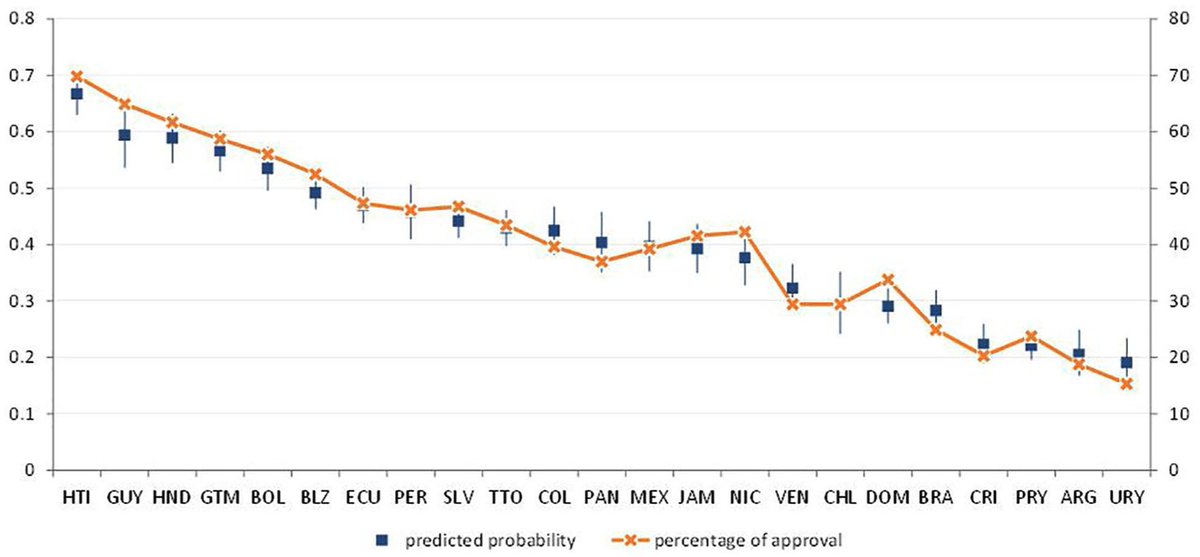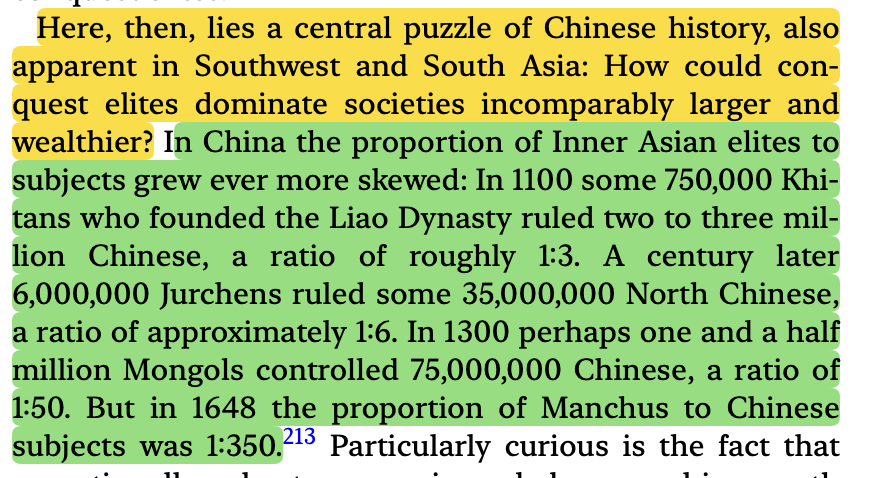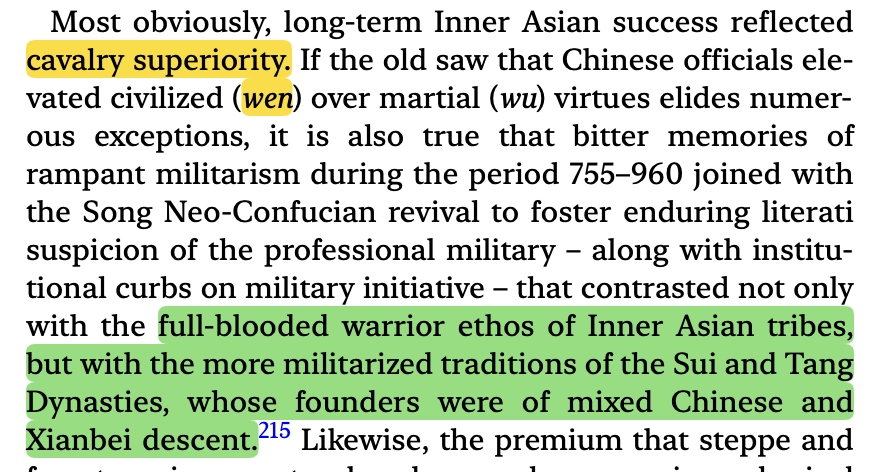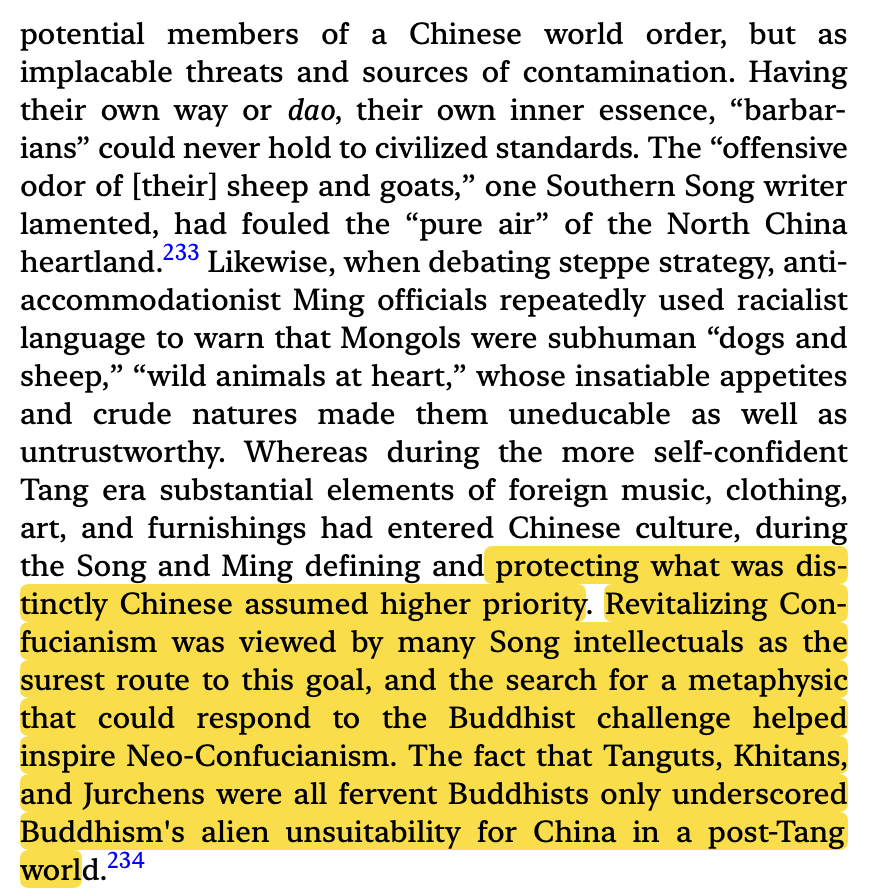“Suppose that a man hits his wife because she has been unfaithful with another man. Would you approve of the man hitting his wife?”
40% of Mexican men & women approve
journals.sagepub.com/doi/10.1177/21…
40% of Mexican men & women approve
journals.sagepub.com/doi/10.1177/21…

Approval is highest amongst those who are religious & say that men are better political leaders journals.sagepub.com/doi/10.1177/21…
Among Mexico’s indigenous communities, key predictors include working outside the home.
This may explain why indengenous women’s LFP is so low.
In Chiapas, 41% of women have experienced domestic violence, vs 16% in the Coastal and South mountain regions.
This may explain why indengenous women’s LFP is so low.
In Chiapas, 41% of women have experienced domestic violence, vs 16% in the Coastal and South mountain regions.

Indigenous men are 13 times more likely to abuse their wives if they drink alcohol daily
Violence is highest among indigenous couples who live in indigenous municipalities (possibly reflecting wider acceptance)
Violence is highest among indigenous couples who live in indigenous municipalities (possibly reflecting wider acceptance)

Severe violence against women is three times more common in the Chiapas region than the Mayan region.
(Surprising since the Mayan civilisation was patriarchal. Tho Yucatan also launched the campaign for female suffrage) sciencedirect.com/science/articl…
(Surprising since the Mayan civilisation was patriarchal. Tho Yucatan also launched the campaign for female suffrage) sciencedirect.com/science/articl…

Why is religiosity independently associated with gender based violence, regardless of beliefs about leaders?
Highly religious people abhor both extra marital sexuality and divorce.
So the woman must be disciplined to preserve the sanctity of marriage, which she cannot leave.
Highly religious people abhor both extra marital sexuality and divorce.
So the woman must be disciplined to preserve the sanctity of marriage, which she cannot leave.
Vigilanteeism and gun culture are two further important predictors.
People who believe they must personally avenge wrong doings (ie where rule of law is weak) there is more endorsement of male violence.
Contrast Honduras and Uruguay,
People who believe they must personally avenge wrong doings (ie where rule of law is weak) there is more endorsement of male violence.
Contrast Honduras and Uruguay,
That’s an important insight into the causes of high femicides and domestic violence in Latin America
It’s not just patriarchy,
But state weakness and a broader belief in taking matters into one’s own hands & dispensing justice
It’s not just patriarchy,
But state weakness and a broader belief in taking matters into one’s own hands & dispensing justice

Frequent #religious attendance, however, is a far stronger predictor than either gender beliefs or vigilanteism 

• • •
Missing some Tweet in this thread? You can try to
force a refresh




















